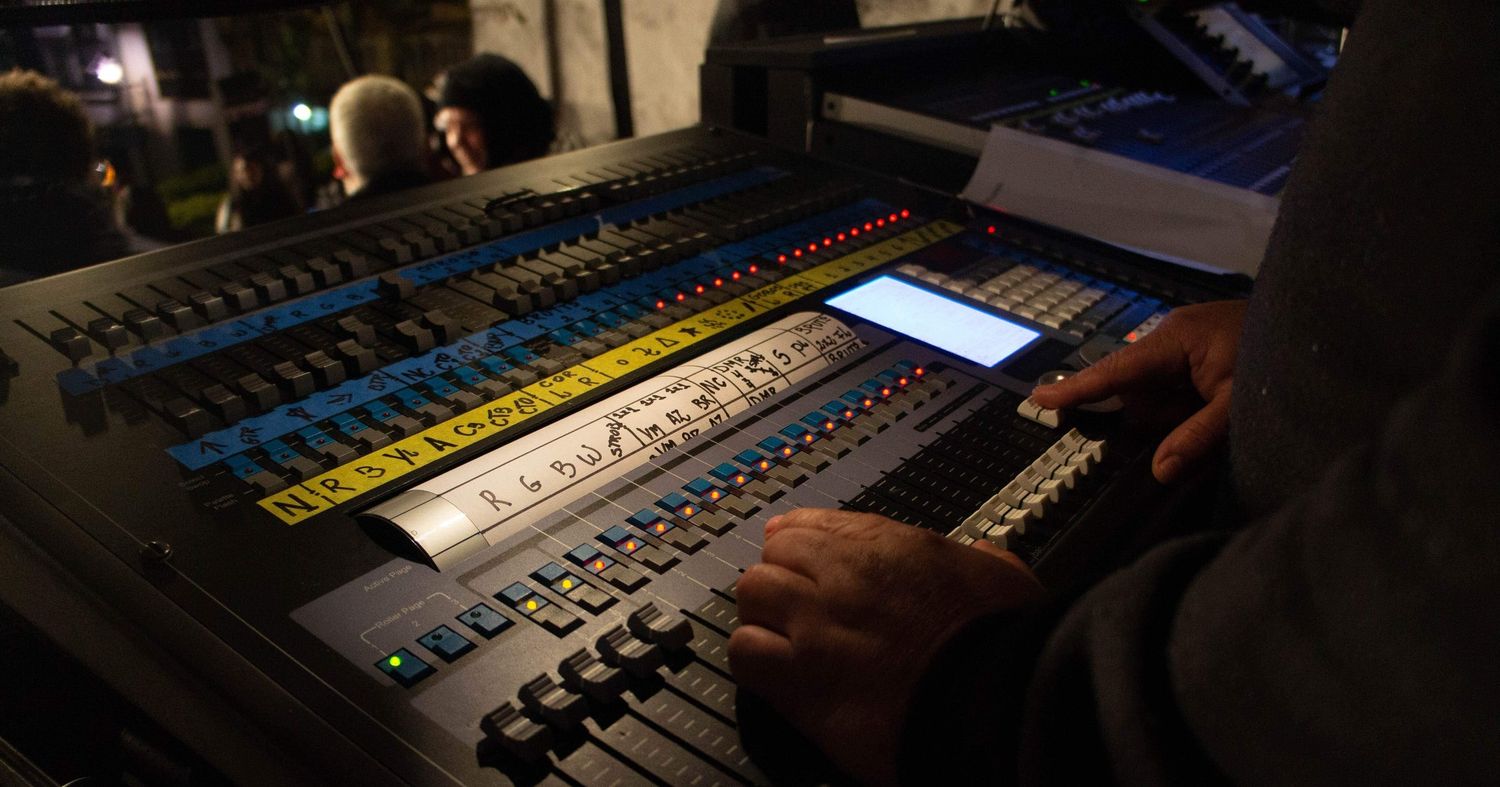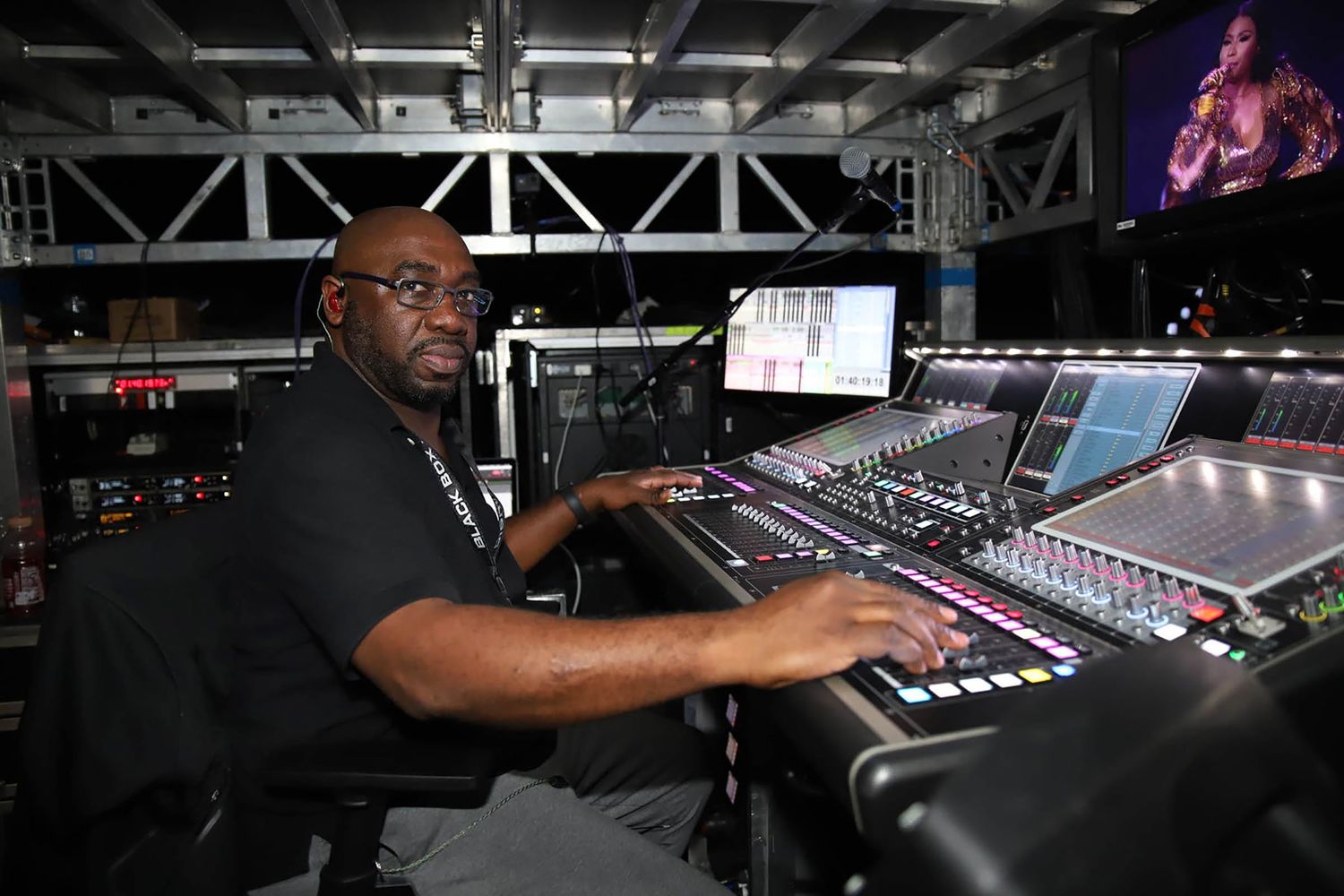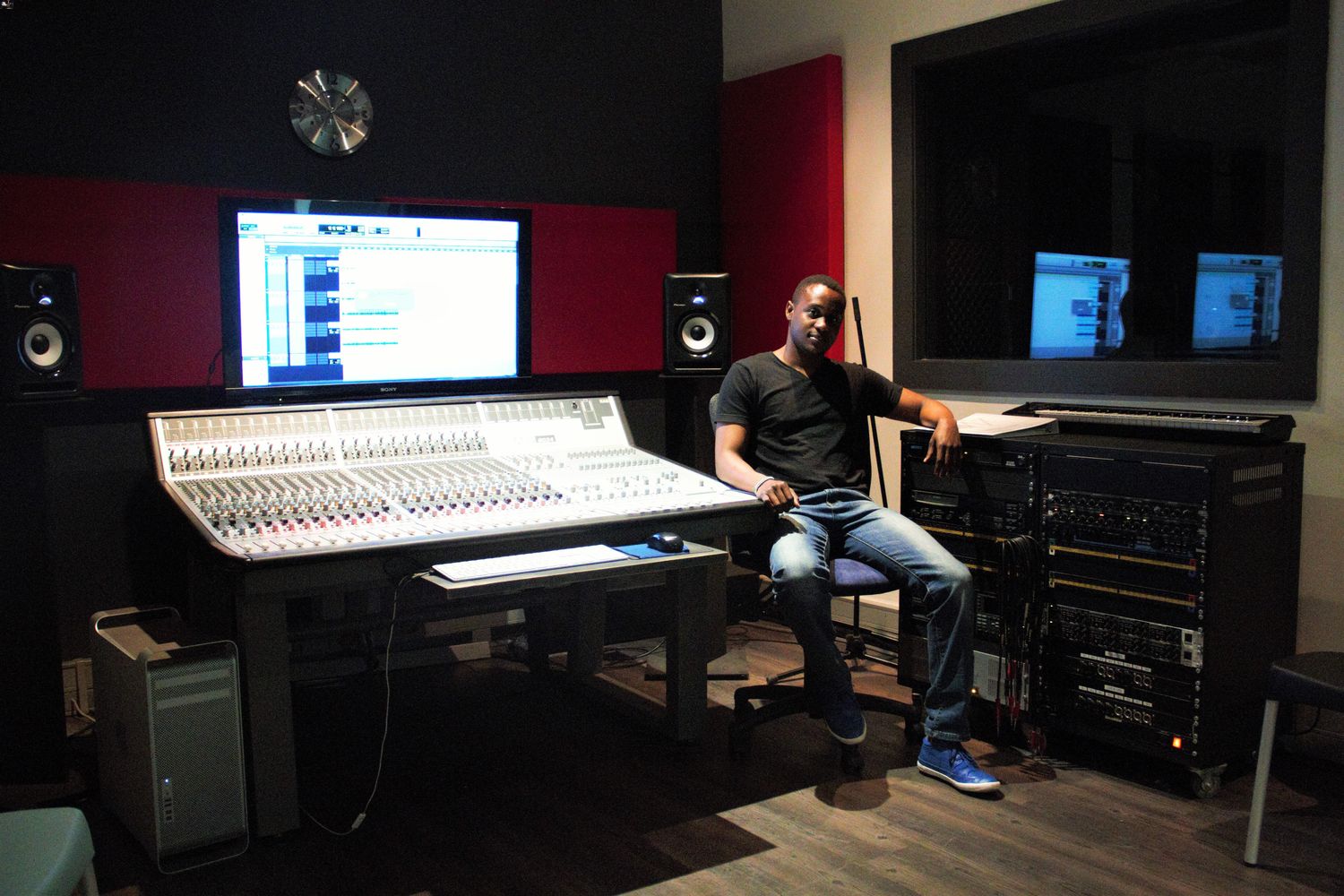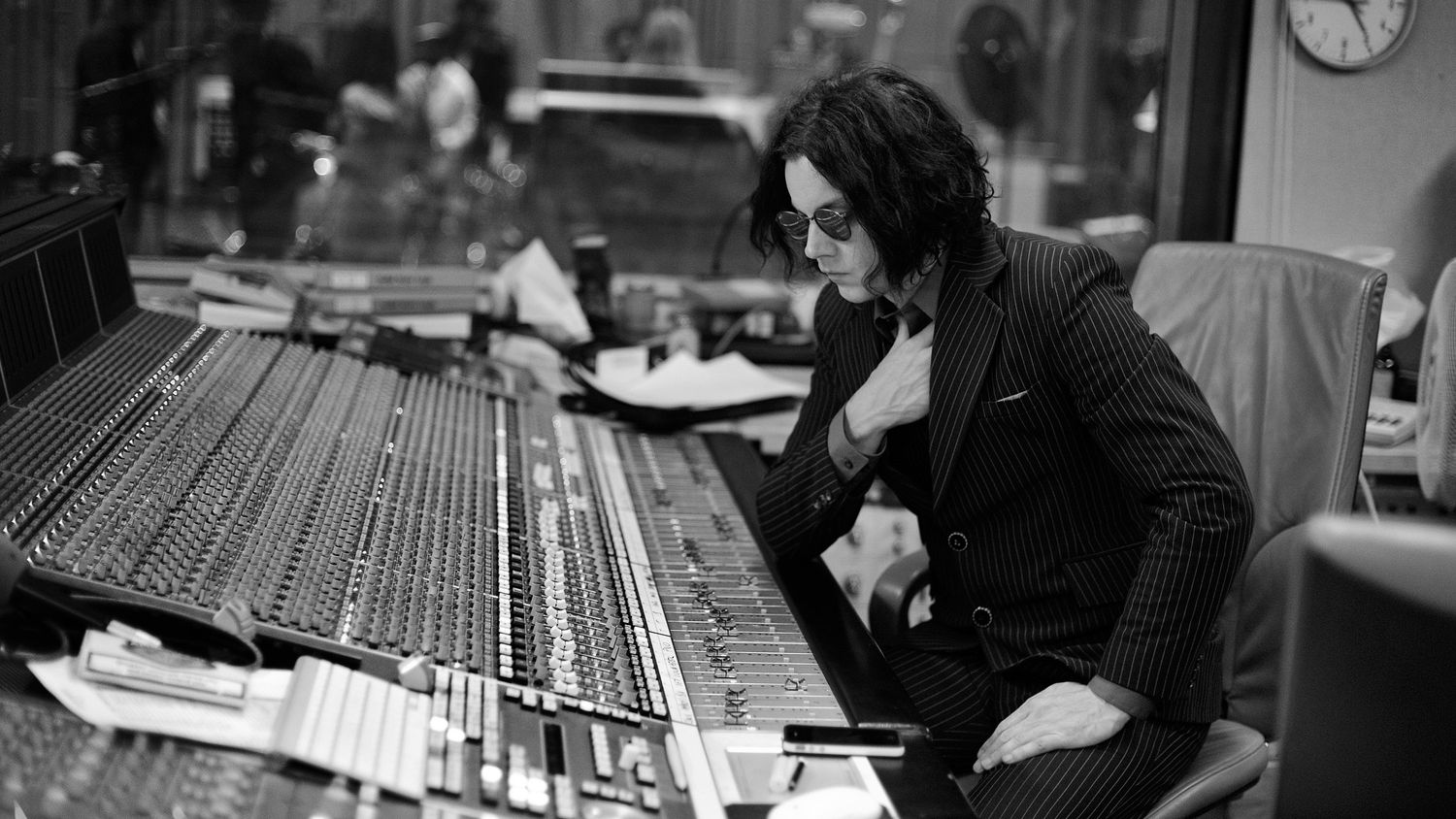Home>Production & Technology>Sound Engineer>How To Be A Union Sound Engineer
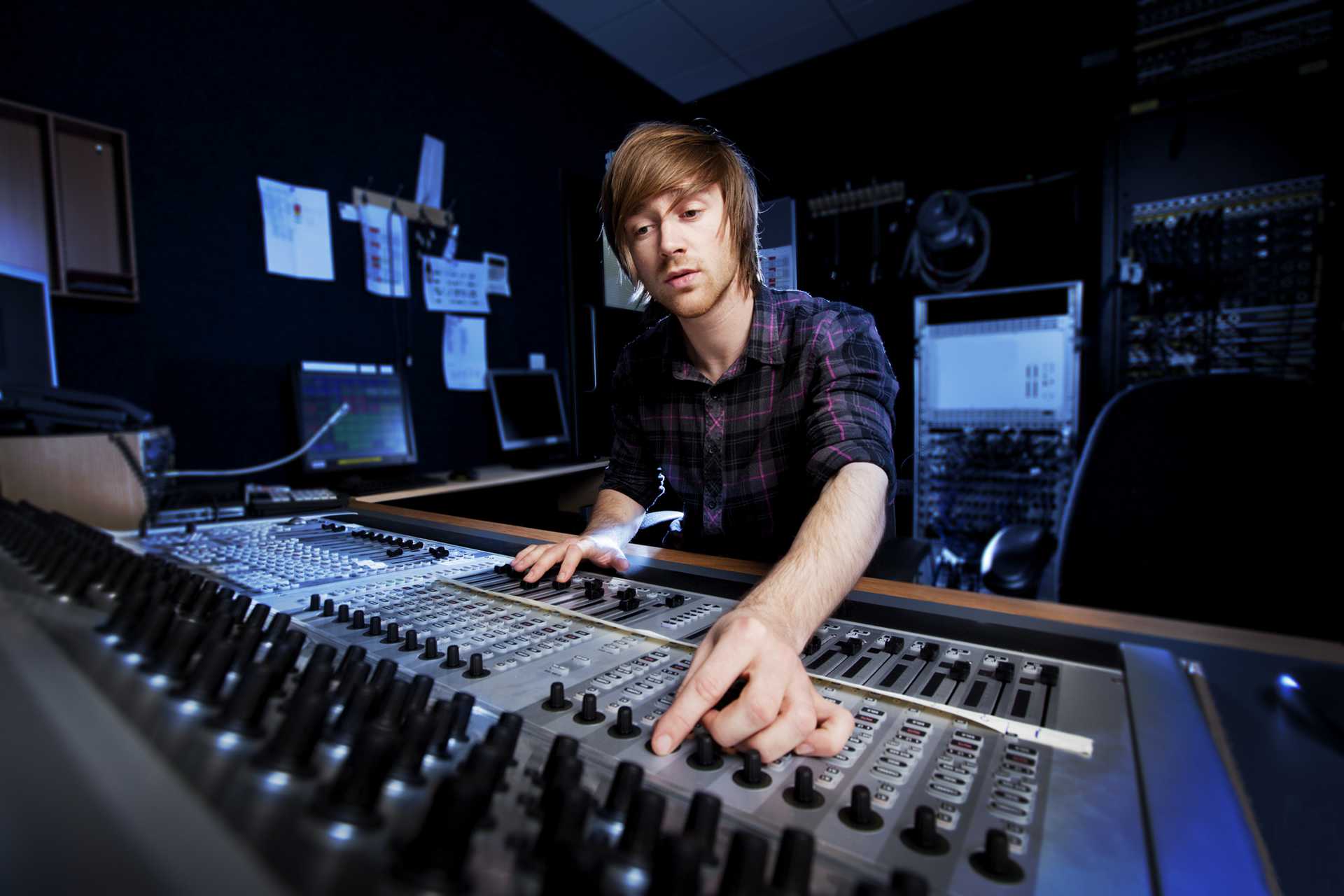

Sound Engineer
How To Be A Union Sound Engineer
Published: March 7, 2024
Learn how to become a successful union sound engineer with essential skills and training. Discover the path to a rewarding career in sound engineering.
(Many of the links in this article redirect to a specific reviewed product. Your purchase of these products through affiliate links helps to generate commission for AudioLover.com, at no extra cost. Learn more)
Table of Contents
Introduction
Becoming a union sound engineer is a rewarding and challenging career path that offers numerous opportunities for growth and professional development. Union sound engineers play a crucial role in the entertainment industry, ensuring that live events, concerts, and productions have top-notch sound quality. This article will guide you through the process of becoming a successful union sound engineer, from obtaining the right education and training to navigating the union hiring process and advancing your career within the union.
As a union sound engineer, you will have the opportunity to work on a wide range of projects, from live music events and theater productions to film and television sets. Your expertise in sound engineering will be essential in creating immersive and captivating experiences for audiences. Whether you aspire to work in a recording studio, live sound reinforcement, or post-production, the union offers a platform for you to showcase your skills and collaborate with industry professionals.
Throughout this article, we will explore the steps you need to take to establish yourself as a union sound engineer. This includes understanding the role of a union sound engineer, obtaining the right education and training, joining a union, navigating the union hiring process, building a strong network, and advancing your career within the union. By following these steps and leveraging the resources available to union members, you can position yourself for success in the competitive and dynamic field of sound engineering.
The journey to becoming a union sound engineer is both exciting and challenging, but with dedication, passion, and a commitment to continuous learning, you can carve out a fulfilling career in this dynamic industry. So, let's embark on this journey together and explore the path to becoming a union sound engineer.
Understanding the Role of a Union Sound Engineer
A union sound engineer plays a pivotal role in ensuring exceptional sound quality across various entertainment platforms, including live events, film, television, and recording studios. Their responsibilities encompass a wide array of technical and creative tasks that are integral to delivering immersive auditory experiences to audiences.
First and foremost, a union sound engineer is tasked with setting up and operating sound equipment to achieve optimal audio quality during live events and performances. This involves a deep understanding of sound systems, microphones, amplifiers, and signal processors, as well as the ability to troubleshoot and resolve technical issues in real-time. Additionally, union sound engineers collaborate closely with artists, performers, and production teams to capture and reproduce sound that aligns with the artistic vision of the project.
In the realm of film and television, union sound engineers are instrumental in capturing high-quality audio on set, ensuring that dialogue, ambient sounds, and effects are recorded with precision. This requires expertise in using boom microphones, lavalier microphones, and field recorders, as well as the ability to coordinate with directors and cinematographers to achieve seamless integration of sound and visuals.
Moreover, union sound engineers play a crucial role in post-production, where they utilize advanced software and hardware to mix, edit, and enhance audio recordings. This phase of the process demands a keen ear for detail, as sound engineers meticulously balance and refine audio elements to achieve a cohesive and impactful sonic landscape.
Beyond technical proficiency, union sound engineers must also possess strong communication and teamwork skills, as they often collaborate with a diverse range of professionals, including musicians, producers, directors, and fellow sound engineers. Their ability to adapt to dynamic environments and work effectively within a team is essential for delivering exceptional sound experiences across various entertainment mediums.
In essence, the role of a union sound engineer is multifaceted, requiring a blend of technical expertise, creativity, and collaborative spirit. By mastering the art of sound engineering and embracing the dynamic nature of the entertainment industry, union sound engineers contribute significantly to the creation of captivating and immersive auditory experiences for audiences worldwide.
Getting the Right Education and Training
Embarking on the journey to become a union sound engineer necessitates acquiring the right education and training to build a solid foundation of knowledge and skills. While there are various paths to entering this dynamic field, obtaining a formal education in sound engineering or a related discipline can provide invaluable expertise and industry-relevant experience.
One of the primary avenues for acquiring the necessary education and training is through accredited audio engineering programs offered by universities, colleges, or specialized technical institutes. These programs typically cover a wide spectrum of topics, including sound theory, acoustics, recording techniques, mixing and mastering, digital audio workstations (DAWs), and live sound reinforcement. Additionally, students have the opportunity to gain hands-on experience with industry-standard equipment and software, allowing them to develop practical skills that are essential for success in the field.
Furthermore, pursuing internships or apprenticeships with established sound engineering professionals and studios can offer invaluable real-world experience and mentorship. Working alongside experienced professionals provides aspiring sound engineers with the opportunity to observe and participate in live productions, studio recordings, and post-production processes, gaining insights that are not always attainable through formal education alone.
In addition to formal education and hands-on training, staying abreast of technological advancements and industry trends is crucial for aspiring union sound engineers. This involves continuous self-study, attending workshops, and obtaining certifications in specialized areas such as audio mixing, sound design, or specific hardware and software platforms. By demonstrating a commitment to ongoing learning and skill development, individuals can enhance their expertise and adapt to the evolving landscape of sound engineering.
Ultimately, obtaining the right education and training sets the stage for a successful career as a union sound engineer. It equips individuals with the technical proficiency, creative insight, and industry knowledge needed to thrive in this competitive and dynamic field. By embracing a comprehensive approach to education and training, aspiring sound engineers can position themselves for a fulfilling and impactful career within the union and the broader entertainment industry.
Joining a Union
Joining a union is a pivotal step for aspiring sound engineers looking to establish themselves in the industry. The union serves as a collective bargaining entity that represents the interests of sound engineers, negotiates fair wages and working conditions, and provides a platform for professional development and networking. By becoming a member of a union, sound engineers gain access to a wide range of benefits and resources that can significantly impact their careers.
The process of joining a union typically begins with researching and identifying the most relevant and reputable unions within the entertainment and sound engineering sectors. It is essential to evaluate the specific benefits, membership requirements, and industry affiliations of each union to determine the best fit for individual career goals and aspirations. Additionally, seeking guidance from industry professionals and mentors can offer valuable insights into the union landscape and facilitate informed decision-making.
Once a suitable union has been identified, the next step involves understanding the membership criteria and application process. This may include meeting certain experience or education prerequisites, submitting an application, and potentially undergoing an interview or assessment. It is crucial to meticulously adhere to the requirements outlined by the union and demonstrate a genuine commitment to upholding the standards and values of the organization.
Upon acceptance into the union, new members gain access to a myriad of benefits, including job placement assistance, access to industry events and workshops, healthcare and retirement benefits, and the opportunity to participate in collective bargaining agreements. These benefits not only contribute to the professional growth and well-being of sound engineers but also foster a sense of community and solidarity within the industry.
Furthermore, joining a union provides sound engineers with a collective voice and representation in advocating for fair compensation, workplace safety, and industry standards. The union serves as a platform for addressing issues and concerns that affect sound engineers collectively, amplifying their influence and impact within the industry.
In essence, joining a union is a significant milestone in the career journey of a sound engineer. It offers a wealth of resources, advocacy, and networking opportunities that can elevate professional growth and contribute to a thriving and sustainable career in the dynamic world of sound engineering. By aligning with a union, sound engineers position themselves for meaningful and impactful contributions to the industry while benefiting from the collective strength and support of their peers.
Navigating the Union Hiring Process
Navigating the union hiring process is a crucial phase in the journey of a sound engineer seeking employment opportunities within the union. This process involves understanding the intricacies of union job placement, leveraging networking channels, and showcasing one's skills and expertise to secure coveted positions in the industry.
One of the primary avenues for accessing union job opportunities is through the union's job referral system. This system serves as a centralized platform for connecting sound engineers with potential employers, including production companies, event organizers, and entertainment venues. Sound engineers registered with the union can access job postings, submit their credentials for consideration, and be referred for suitable positions based on their qualifications and experience.
Furthermore, networking within the union and the broader entertainment industry plays a pivotal role in navigating the hiring process. Engaging with fellow union members, attending industry events, and actively participating in union-sponsored workshops and seminars can expand a sound engineer's professional network and open doors to potential job opportunities. Building meaningful connections and fostering positive relationships within the industry can lead to valuable referrals and recommendations, enhancing the likelihood of securing desirable positions.
In addition to leveraging the union's job referral system and networking efforts, sound engineers must effectively showcase their skills and expertise to prospective employers. This involves maintaining an updated and comprehensive portfolio that highlights past projects, technical proficiencies, and industry accolades. A well-crafted resume and cover letter tailored to the specific job requirements can significantly impact the hiring process, capturing the attention of potential employers and demonstrating a sound engineer's suitability for the role.
Moreover, preparing for interviews and auditions with a thorough understanding of the job requirements and industry standards is essential for navigating the hiring process successfully. Sound engineers should articulate their professional experiences, problem-solving abilities, and collaborative skills during interviews, showcasing their readiness to contribute to the success of the projects they are being considered for.
By navigating the union hiring process with a strategic approach, proactive networking, and a compelling presentation of skills and expertise, sound engineers can position themselves for exciting and rewarding opportunities within the union and the broader entertainment industry. This process not only facilitates access to diverse job prospects but also reinforces the value of sound engineers as integral contributors to the dynamic world of entertainment and live events.
Building a Strong Network
Building a strong network is a fundamental aspect of establishing a successful career as a union sound engineer. A robust professional network not only fosters valuable connections but also opens doors to diverse opportunities within the entertainment industry. Networking serves as a catalyst for collaboration, mentorship, and career advancement, allowing sound engineers to engage with industry professionals, peers, and potential employers.
One of the most effective ways to build a strong network is through active participation in industry events, such as conferences, trade shows, and workshops. These gatherings provide sound engineers with the opportunity to connect with like-minded individuals, industry leaders, and potential collaborators. Engaging in meaningful conversations, exchanging ideas, and seeking mentorship at such events can significantly expand one's professional circle and pave the way for future collaborations and career growth.
Additionally, leveraging digital platforms and online communities tailored to sound engineering and entertainment can amplify networking efforts. Participating in industry-specific forums, social media groups, and online discussions enables sound engineers to engage with a global community of professionals, share insights, and stay informed about industry trends and opportunities. These virtual networks complement traditional networking avenues and facilitate connections beyond geographical boundaries.
Furthermore, nurturing relationships with fellow union members and industry professionals is pivotal in building a strong network. Actively engaging in union-sponsored events, mixers, and professional development activities creates opportunities to connect with peers and establish meaningful relationships. These connections can lead to referrals, collaborations on projects, and valuable insights into the industry landscape, ultimately contributing to the growth and sustainability of a sound engineer's career.
Mentorship also plays a crucial role in network building, as seasoned professionals can offer guidance, support, and industry knowledge to aspiring sound engineers. Seeking mentorship within the union and the broader entertainment community can provide invaluable perspectives, career advice, and opportunities for professional growth. Establishing mentor-mentee relationships fosters a sense of community and knowledge sharing, enriching the professional journey of sound engineers.
In essence, building a strong network is a continuous and proactive endeavor that empowers sound engineers to forge meaningful connections, access diverse opportunities, and contribute to the vibrant tapestry of the entertainment industry. By embracing networking as a cornerstone of career development, sound engineers position themselves for long-term success and fulfillment within the union and the broader landscape of sound engineering and entertainment.
Advancing Your Career in the Union
Advancing one's career in the union as a sound engineer involves a strategic and proactive approach aimed at continual growth, skill enhancement, and professional recognition within the dynamic landscape of the entertainment industry. As a union sound engineer, the pursuit of career advancement is fueled by a commitment to excellence, ongoing learning, and active engagement with industry opportunities.
One of the key avenues for advancing a career within the union is through continuous skill development and specialization. Sound engineers can explore advanced training programs, specialized certifications, and workshops tailored to specific areas of sound engineering, such as immersive audio, spatial sound design, or advanced mixing techniques. By honing specialized skills, sound engineers position themselves as sought-after professionals capable of delivering innovative and high-quality sound experiences across diverse entertainment platforms.
Moreover, seeking leadership opportunities within the union and industry organizations can significantly contribute to career advancement. Active involvement in union committees, industry forums, or educational initiatives not only showcases a sound engineer's dedication to the profession but also fosters leadership skills, industry influence, and the opportunity to contribute to the advancement of sound engineering practices and standards.
Furthermore, pursuing mentorship and offering mentorship within the union community can be instrumental in career advancement. Establishing mentor-mentee relationships with seasoned professionals and actively supporting the growth of emerging talent within the union fosters a culture of knowledge sharing, professional development, and industry leadership. Mentorship not only enriches the career journey of sound engineers but also contributes to the collective growth and sustainability of the union and the broader entertainment industry.
Additionally, actively seeking out diverse and challenging projects within the union can propel career advancement. Embracing opportunities to work on high-profile events, collaborate with renowned artists, or contribute to groundbreaking productions allows sound engineers to expand their portfolio, gain industry recognition, and elevate their professional standing within the union and the entertainment community.
In essence, advancing one's career within the union as a sound engineer is a multifaceted journey that encompasses skill development, leadership engagement, mentorship, and a proactive pursuit of diverse and impactful projects. By embracing these avenues for advancement, sound engineers position themselves for continued growth, industry recognition, and a lasting impact on the captivating world of sound engineering and entertainment.

